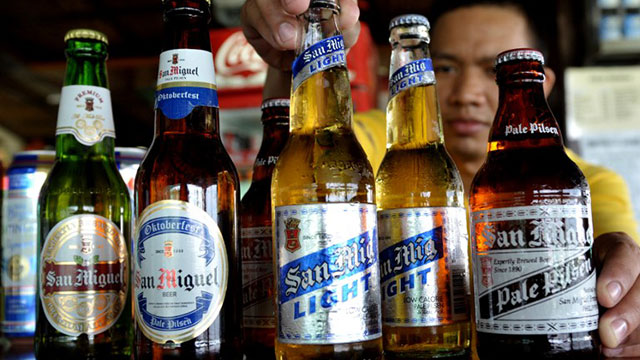SUMMARY
This is AI generated summarization, which may have errors. For context, always refer to the full article.

MANILA, Philippines – An industry association composed of the country’s biggest liquor makers sought a temporary restraining order (TRO) from a local court to stop the government from implementing the Sin Tax Law.
The Distilled Spirits Association of the Philippines (DSAP) cited double taxation as reason for seeking a TRO from the Manila Regional Trial Court.
The new law — Republic Act No. 10351 or the or An Act Restructuring the Excise Tax on Alcohol and Tobacco, which, prescribes higher tax rates on tobacco and alcohol products — took effect last January 1, 2013.
Members of DSAP include Destileria Limtuaco, San Miguel Corp., Ginebra San Miguel Inc., Tanduay Distillers Inc., Emperador Distillers, and Alcohol Distilleries-Absolute Chemicals Inc.
Double taxation
The DSAP said current taxes imposed on the raw material (ethyl alcohol), as well as the imposition of another excise tax on compounded liquors produced from ethyl alcohol, meant the distilled spirits makers will be subjected to double taxation.
“There is double taxation when two taxes of the same kind or character [are] imposed on the same subject matter for the same purpose by the same taxing authority within the same jurisdiction during the same taxing period,” DSAP said.
They focused on the the Sin Tax Law’s Section 12, which tackles the claim for tax refund of specific taxes paid on alcohol.
“Under the circumstances, the prohibition on the claim for tax credit/refund of specific taxes paid on ethyl alcohol subsequently used as raw materials would mean very substantial losses to petitioners.”
The Section 12-C of the Bureau of Internal Revenue’s Revenue Regulation 17-2012, the sin tax law’s IRR, says: “The specific tax that was paid on the physical inventory of ethyl alcohol held in possession by manufacturers of compounded liquors as of the effectivity of the Act subsequently used as raw materials in the production of compounded liquors shall not be entitled to tax credit or refund or shall not be deducted from the total excise tax due on compounded liquors.”
DSAP said some companies already paid P1.7 billion in excise taxes for its ethyl alcohol inventory. – Rappler.com
More on the Sin Tax law:
Add a comment
How does this make you feel?
There are no comments yet. Add your comment to start the conversation.